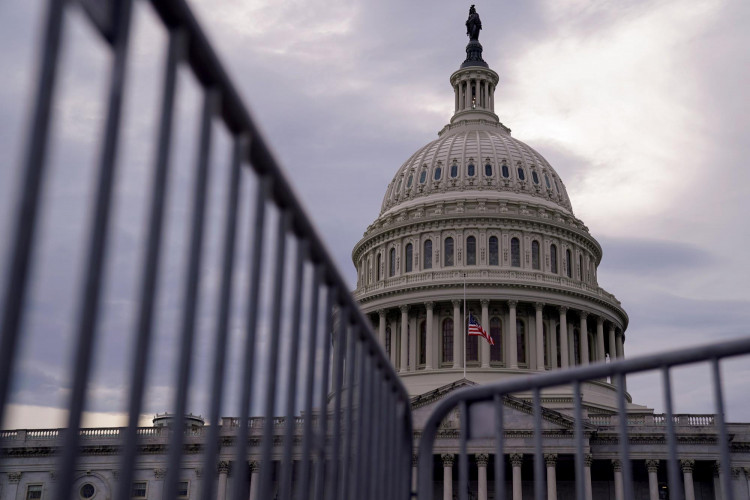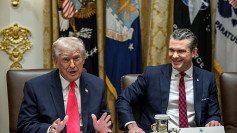The United States Senate finds itself in a tumultuous standstill, grappling with the formidable task of forwarding a significant foreign aid package that aims to bolster allies such as Ukraine, Israel, and Taiwan.
Senate Majority Leader Chuck Schumer, in a bid to navigate through the legislative deadlock, has extended an olive branch to his Republican counterparts, offering them additional time to consolidate their position on the contentious aid proposal. Schumer's decision to delay the critical vote to Thursday underscores the deep partisan divide and the complex political maneuvering engulfing the Senate.
"We're waiting for the Republicans to tell us what's next," articulated Senate Majority Whip Dick Durbin (D-Ill.), encapsulating the sense of anticipation and uncertainty that looms over the Senate floor. The aid package, entangled in a broader debate over border security and immigration policies, has exposed the fissures within the Republican ranks, further complicated by former President Donald Trump's pronounced influence over the party's direction and policy stance.
Wednesday's procedural vote, which failed to secure the necessary 60 votes to advance, laid bare the challenges faced by Republicans who are inclined to support the aid package but are caught in a conundrum over border security provisions. "Our side is not willing to give up the border fight," declared Sen. John Cornyn (R-Texas), signaling the party's entrenched position on the issue.
The impasse is not merely a reflection of internal GOP discord but also signifies the broader implications for US foreign policy and its commitment to global allies. The aid package, painstakingly negotiated over several months, has become a litmus test for the Senate's ability to transcend partisan politics in favor of upholding America's strategic interests and international obligations.
The failed vote also serves as a rebuke to the bipartisan efforts led by Sen. James Lankford (R-Okla.), whose border deal was crafted to address the Republicans' demands for stringent border security measures. The rejection of Lankford's proposal, amidst a barrage of criticism from Trump and other influential Republicans, highlights the formidable sway of Trump's narrative within the GOP and the broader political ramifications of his stance on Ukraine aid and border security.
As Schumer vows to proceed with Thursday's vote, the Senate stands at a critical juncture, with the fate of the foreign aid package hanging in the balance. The possibility of amendments and further negotiations offers a glimmer of hope for a resolution, yet the path forward remains fraught with uncertainty and political complexities.
"We're hoping that Republicans are gonna get their act together," expressed Sen. Jeanne Shaheen (D-N.H.), echoing the sentiment of cautious optimism that pervades the Democratic caucus. The outcome of the forthcoming vote will not only determine the immediate legislative trajectory but also shape the contours of US foreign policy and its role as a steadfast ally in an increasingly volatile global landscape.
As the Senate endeavors to bridge the partisan divide, the world watches closely, awaiting a resolution that reaffirms America's commitment to its allies and upholds the principles of democracy and international cooperation that define its global leadership.





